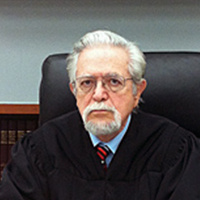BEST INTERESTS (OF THE CHILD)
The test that courts use when deciding who will take care of a child. For instance, an adoption is allowed only when a court declares it to be in the best inter...
(more...)The test that courts use when deciding who will take care of a child. For instance, an adoption is allowed only when a court declares it to be in the best interests of the child. Similarly, when asked to decide on custody issues in a divorce case, the judge will base his or her decision on the child's best interests. And the same test is used when judges decide whether a child should be removed from a parent's home because of neglect or abuse. Factors considered by the court in deciding the best interests of a child include: age and sex of the child mental and physical health of the child mental and physical health of the parents lifestyle and other social factors of the parents emotional ties between the parents and the child ability of the parents to provide the child with food, shelter, clothing and medical care established living pattern for the child concerning school, home, community and religious institution quality of schooling, and the child's preference.
 x
x

 Anthony Abbott San Marcos, CA
Anthony Abbott San Marcos, CA
